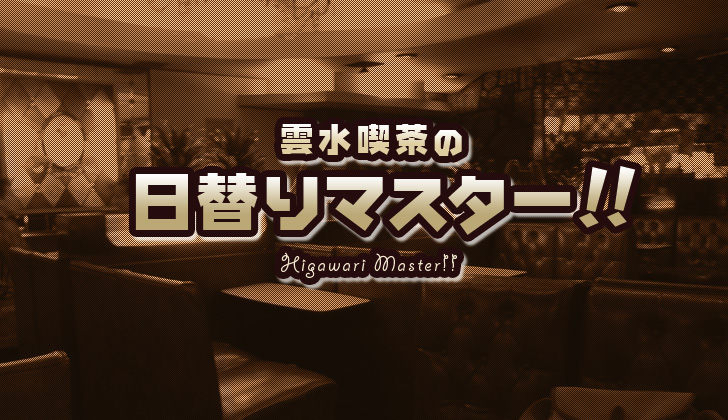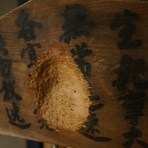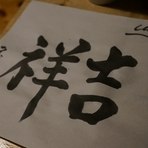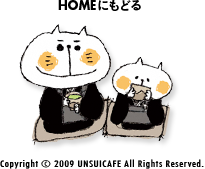English/Deutsch/日本語
------------------------------------------------------------------------------------------------------------------------
Shōji
------------------------------------------------------------------------------------------------------------------------
Shōji
Life and Death (Translated from the Japanese by Gudo Wafu Nishijima and Chodo Cross)
Translator's Note: Shō means "life" and ji means "death," so shoji means "life and death." Although the words "life" and "death" exist in all languages, Master Dōgen says that we are not able to understand intellectually what our life and death are. He says that their meaning is embedded in our real day-to-day life itself. In this chapter he explains life and death as the real momentary state at the present moment. In our daily life, life and death both exist in undivided wholeness.[93]
Because in life and death there is buddha, there is no life and death. Again, we can say: Because in life and death there is no "buddha," we are not deluded in life and death.1 [This] meaning was expressed by Kassan2 and Jōzan.3 [These] are the words of the two Zen masters; they are the words of people who had got the truth, and so they were decidedly not laid down in
vain. A person who wishes to get free from life and death should just illu- minate this truth. If a person looks for buddha outside of life and death, that 305b is like pointing a cart north and making for [the south country of] Etsu, or like facing south and hoping to see the North Star. It is to be amassing more and more causes of life and death, and to have utterly lost the way of liber- ation. When we understand that only life and death itself is nirvana, there is nothing to hate as life and death and nothing to aspire to as nirvana. Then, for the first time, the means exist to get free from life and death. To understand that we move from birth4 to death is a mistake. Birth is a state at one moment; it already has a past and will have a future. For this reason, it is said in the Buddha-Dharma that appearance is just nonappearance.5 Extinction6 also is a state at one moment; it too has a past and a future. This is why it is said that disappearance is just non-disappearance.7 In the time called "life," there is nothing besides life. In the time called "death," there is nothing besides death. Thus, when life comes it is just life, and when death comes it is just death; do not say, confronting them, that you will serve them,8 and do not wish for them.
[95] This life and death is just the sacred life of buddha. If we hate it and want to get rid of it, that is just wanting to lose the sacred life of buddha. If we stick in it, if we attach to life and death, this also is to lose the sacred life of buddha. We confine ourselves to the condition of buddha. When we are without dislike and without longing, then for the first time we enter the mind of buddha. But do not consider it with mind and do not say it with words! When we just let go of our own body and our own mind and throw 305c them into the house of buddha, they are set into action from the side of buddha; then when we continue to obey this, without exerting any force and without expending any mind, we get free from life and death and become buddha. Who would wish to linger in mind?
[97] There is a very easy way to become buddha. Not committing wrongs; being without attachment to life and death; showing deep compassion for all living beings, venerating those above and pitying those below; being free of the mind that dislikes the ten thousand things and free of the mind that desires them; the mind being without thought and without grief: this is called buddha. Look for nothing else.
Shōbōgenzō Shōji Year not recorded.
Notes
1 These are Master Dōgen's variations of expressions that appear in the Keitokuden- tōroku, chap. 7: Jōzan says to Kassan, "Because in life and death there is no buddha, then it is not life and death." Kassan says, "Because in life and death there is buddha, then we are not deluded by life and death."
2 Master Kassan Zenne (805-881), a successor of Master Sensu Tokujō. At the sug- gestion of Master Dōgo Enchi, he visited Master Sensu and attained the truth under him (see Chapter Fourteen [Vol. I], Sansuigyō; Shinji-shōbōgenzō, pt. 1, no. 90). Later he lived and taught on Mount Kassan. His posthumous title was Great Master Denmyō.
3 Master Jōzan Shinei (dates unknown), a successor of Master Isan Reiyū.
4 Shō means "birth," "life," "arising," or "appearance."
5 Shō sunawachi fushō. Fushō, "nonappearance," expresses instantaneousness. See, for example, Chapter Three (Vol. I), Genjō-kōan.
6 Metsu means "extinction," "death," "cessation," or "disappearance." In general shōji suggests "life and death," whereas shōmetsu suggests "appearance and disappear- ance"; but metsu also means "death."
7 Metsu sunawachi fumetsu. Fumetsu, "non-disappearance," also expresses instanta- neousness--the moment of the present is independent, so it does not appear from the past and it does not disappear into the future.
8 "Serving life" or "being a slave to life," means, for example, the attitude of a hypochon- driac, or the excessively health-conscious. "Serving death" describes the attitude of a drug addict, or of someone who drives unreasonably fast. "Confronting" suggests separation.
(Translated from the Japanese by Gudo Wafu Nishijima and Chodo Cross)
(Translated from the Japanese by Gudo Wafu Nishijima and Chodo Cross)
------------------------------------------------------------------------------------------------------------------------
Shôji
Leben und Tod
(aus der Shôbôgenzo-Ausgabe des Theseus Verlags)
(aus der Shôbôgenzo-Ausgabe des Theseus Verlags)
Es wird gesagt: "Es gibt kein Leben und Tod, wenn Buddha innerhalb von
Leben und Tod ist." Nochmals: "Wenn Buddha nicht innerhalb von Leben und
Tod ist, dann gibt es keine Täuschung über Leben und Tod 1." Meister Kassan
Zen´e und Meister Jôzan Shinei 2 sprachen diese Worte über Leben und Tod;
sie waren erleuchtete Menschen, deshalb sollten wir sorgfältig die Bedeutung
ihrer Worte studieren. Wenn du von Leben und Tod befreit sein willst, dann
mußt du diese Worte klar verstehen.
Wenn du versuchst, den Buddha außerhalb der Welt von Leben und Tod zu
finden, gleichst du jemandem, der seinen Wagen nach Norden richtet, wenn
er nach Süden möchte oder der im Süden nach dem Großen Bären schaut 3.
Wenn du dies tust, verfehlst du den Weg der Befreiung.
Akzeptiere Leben und Tod als Nirvana, hasse keines von beiden, und begehre
nicht das Nirvana. Nur dann bist du wahrhaft losgelöst von Leben und Tod.
Irrtümlicherweise denkt man, dass das Leben sich zum Tod wandelt. Das
Leben hat jedoch eine absolute Existenz mit einer eigenen Zeit und besitzt be-
reits eine Vergangenheit und eine Zukunft. Deshalb sagt das Buddha-Dharma,
dass das Leben "ungeboren" ist (d.h. beständige, ganze Existenz). Die Beendi-
gung des Lebens hat auch eine absolute Existenz mit einer eigenen Zeit und be-
sitzt eine Vergangenheit und eine Zukunft. Zerstörung nennt man "Nicht-
Zerstörung". Im Leben gibt es nichts als Leben, im Tod nichts als Tod. Darum
akzeptiere das Leben, wenn es kommt, als das, was es ist; und wenn der Tod
kommt, akzeptiere ihn als das, was er ist. Verabscheue oder verlange keines
von beiden.
Leben und Tod sind das Leben Buddhas. Wenn du sie verachtest und ver-
leugnest, verlierst du das Leben Buddhas. Aber wenn du dich an Leben
und Tod bindest, verlierst du das Leben Buddhas auch und bleibst nur mit
seiner äußeren Form zurück. Nur wenn du weder Leben und Tod verabscheust,
noch das Nirvana begehrst, wirst du den Geist Buddhas erfassen. Versuche
nicht, es mit deinem Geist zu bestimmen, oder mit Worten zu beschreiben.
Wenn du Körper und Geist ablegst und das Königreich Buddhas betrittst, wird
er dich leiten; wenn du seinem Weg folgst, erlangst du Loslösung vom Leben
und Tod. Ohne Anstrengung und ohne deinen Geist zu gebrauchen wirst du
ein Buddha. Wenn du dies verstehst, bist du nicht länger gebunden.
Es gibt einen einfachen Weg, Buddha zu werden. Schaffe nichts Böses, klam-
mere dich nicht an Leben und Tod, habe tiefes Mitleid für alle Lebewesen,
respektiere diejenigen über dir und sei freundlich zu deinen Untergebenen, gib
Haß und Verlangen, Qual und Kummer auf - das ist es, was "Buddha" ge-
nannt wird. Suche nichts anderes.
(aus der Shôbôgenzo-Ausgabe des Theseus Verlags)
------------------------------------------------------------------------------------------------------------------------
正法眼藏生死(原文)
生死の中に佛あれば生死なし。又云く、生死の中に佛なければ生死にまどはず。こころは、夾山、定山といはれしふたりの禪師のことばなり。得道の人のことばなれば、さだめてむなしくまうけじ。
生死をはなれんとおもはん人、まさにこのむねをあきらむべし。もし人、生死のほかにほとけをもとむれば、ながえをきたにして越にむかひ、おもてをみなみにして北斗をみんとするがごとし。いよいよ生死の因をあつめて、さらに解のみちをうしなへり。ただ生死すなはち涅槃とこころえて、生死としていとふべきもなく、涅槃としてねがふべきもなし。このときはじめて生死をはなるる分あり。
生より死にうつると心うるは、これあやまりなり。生はひとときのくらゐにて、すでにさきあり、のちあり。かるがゆゑに、佛法の中には、生すなはち不生といふ。滅もひとときのくらゐにて、又さきあり、のちあり。これによりて、滅すなはち不滅といふ。生といふときには、生よりほかにものなく、滅といふとき、滅のほかにものなし。かるがゆゑに、生きたらばただこれ生、滅きたらばこれ滅にむかひてつかふべし。いとふことなかれ、ねがふことなかれ。
この生死はすなはち佛の御いのちなり。これをいとひすてんとすれば、すなはち佛の御いのちをうしなはんとするなり。これにとどまりて生死に著すれば、これも佛のいのちをうしなふなり、佛のありさまをとどむるなり。いとふことなく、したふことなき、このときはじめて佛のこころにいる。ただし、心をもてはかることなかれ、ことばをもていふことなかれ。ただわが身をも心をもはなちわすれて、佛のいへになげいれて、佛のかたよりおこなはれて、これにしたがひもてゆくとき、ちからをもいれず、こころをもつひやさずして、生死をはなれ、佛となる。たれの人か、こころにとどこほるべき。
佛となるに、いとやすきみちあり。もろもろの惡をつくらず、生死に著するこころなく、一切衆生のために、あはれみふかくして、上をうやまひ下をあはれみ、よろづをいとふこころなく、ねがふ心なくて、心におもふことなく、うれふることなき、これを佛となづく。又ほかにたづぬることなかれ。








コメントする